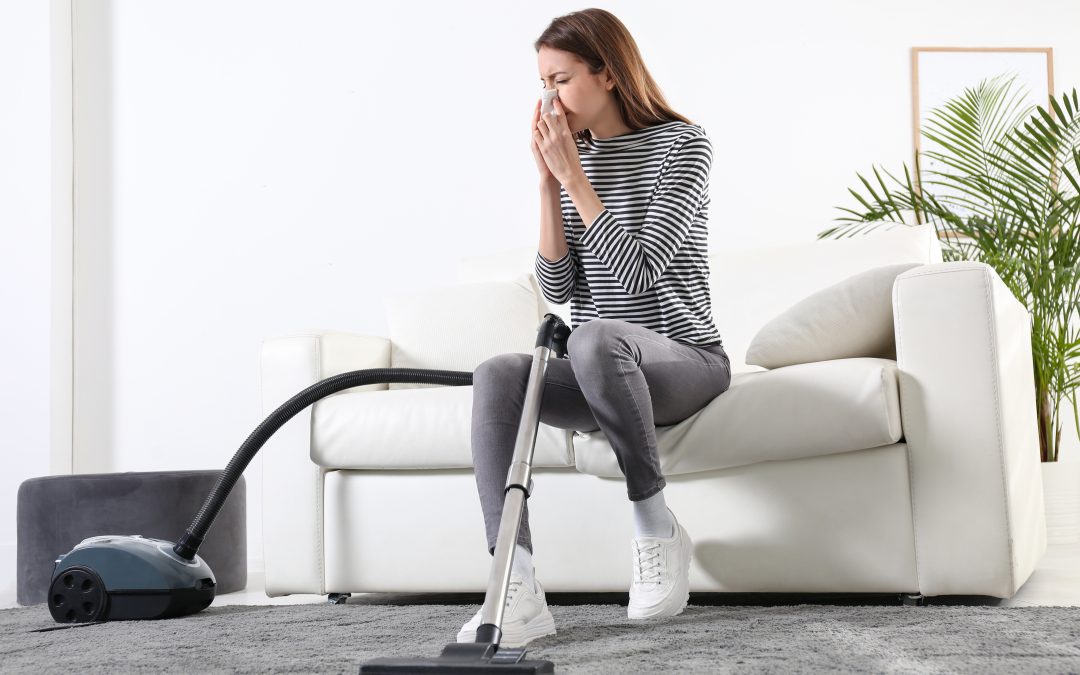For those who suffer from seasonal or environmental allergies or asthma, you want your home to be a safe haven – not a source of irritation! The truth is no matter how hard you try, allergens find a way into your home. Pollen travels in on shoes, sweaters, and pets. Mildew and mold grow in moist areas. Dust mites living in mattresses and upholstered furniture generate allergens. Volatile organic compounds (VOCs) like benzene and formaldehyde used in the manufacturing of many home materials convert to gas and exacerbate allergies by reducing air quality. And as all these things gather in the air, gravity pulls them right down to your floors.
In the fight against allergens – flooring matters!
Generally speaking, smooth surface flooring is a better choice for allergy sufferers. Without fibers to cling to or crevices to settle in, it’s harder for those allergens that make their way into your home to settle down, hide away and continue to irritate your respiratory system.
Ceramic and porcelain tile are nearly impenetrable. They significantly reduce the possibility of mold and mildew growth and are impervious to dust mites, pollen and pet hair. Look out for natural stone tile, however, which is more porous and may have crevices that allergens can cling to.
Hardwood is also an excellent choice for allergy sufferers, as are cork and bamboo flooring. Allergens struggle to get purchase on these surfaces. Do avoid areas of moisture though as woods are vulnerable to mold and mildew.
These smooth surfaces will not trap allergens, but they cannot neutralize them. Pollen, dust and pet dander will remain loose and require regular cleaning to avoid triggering allergies. Regular cleaning can be as simple as using a broom and dust mop or a small floor vac to pick up the “dust bunnies” that will be visible on smooth surface flooring.
But what if you are an allergy sufferer who loves carpet?
While carpet is less ideal for managing allergens in the home, it is not off limits to those with allergies. You can make choices within the range of carpets and keep your home comfortable. When selecting carpet, opt for tightly woven low pile. Any form of shag carpeting will create an ideal space for allergens and should be avoided. Material also matters – opt for nylon carpet and avoid wool. If you do choose carpet, plan to vacuum often, and consider purchasing a vacuum with a HEPA filter. You may also want to budget for regular professional cleaning. Carpet lovers might also consider washable area rugs over smooth surface floors as a soft alternative to installed carpet.
Regardless of what material you choose in flooring, those with allergies should take special care to select materials that are low in VOCs. Don’t forget to consider the underlay or padding as well as any adhesives, as all of these materials can impact the air quality in your home.
When you consult a professional at Floorzone, let us know that you suffer from allergies. We can help steer you toward the best choices for your health and wellness. We want you to be comfortable in your home!

